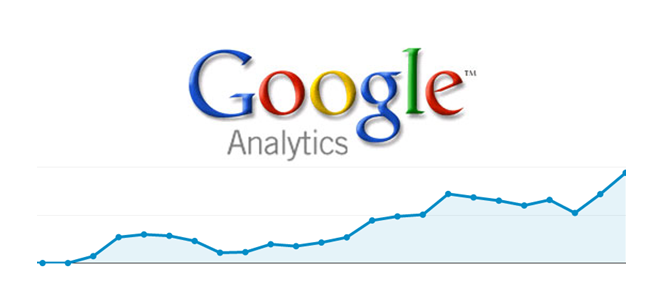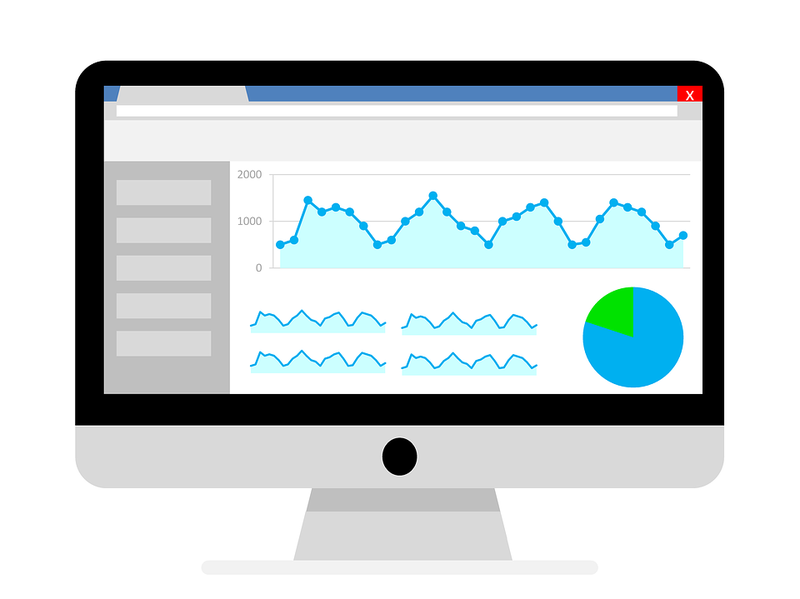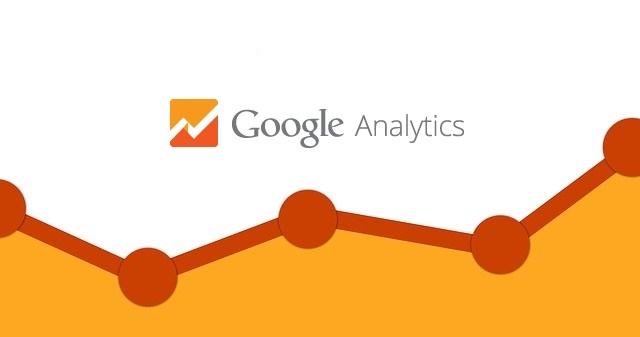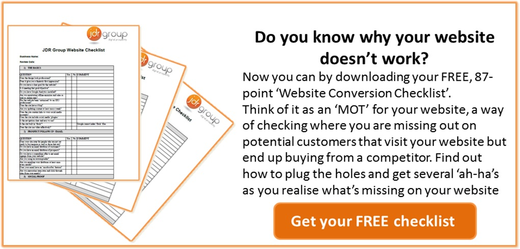How To Analyse Google Analytics For Better Website Conversions
by Kerry Baker on 23-Oct-2013 11:51:00

Many small business owners find Google Analytics challenging, although they often have a basic understanding of the analytics, they can sometimes struggle to understand how to use this information to achieve better conversion rates for their business. I hope this article will go some way towards helping you to piece things together so that you can use your Google Analytics to help improve your online conversions and ultimately increase your online profits.
Think About Your Expectations For Your Business
In my opinion the best way to analyse your analytics for better conversions rates online, is to put things into simple terms rather than becoming confused with all of the facts, figures and numbers Google provides you with. Break things down into a way that you feel comfortable; Make this information actually work for your business by using it to improve your conversion rates.
You need to think about your business and what your Google Analytics say about your business and its online performance. As a business owner, I’m sure you make a huge number of decisions every day about what you expect from your business. For example: How much revenue you expect to take, how many leads you expect to get, how many sales you need to break even etc. Whenever you look at your Google Analytics, do it with your expectations for your business in mind. By doing this you will add the best context to the information that you are seeing when it comes to analysing your stats.
Break Your Analytics Into Segments
One of the main things many business owners have a challenge with, when it comes to analysing their analytics is “what makes a good analysis?” Analysis is not as complicated as it may first seem, good analysis is simply identifying what is happening on your website, which means looking at both the good things and the bad things! Once you have done this, use what you have learned to promote the good things to do them more! Fix the bad things, and do them less!
One of the main things you need to do when it comes to analysing your data is segment your data. Really drill down into your data to find the things that have a high bounce rate or a low conversion rate.
For more information on how to decrease your bounce rate have awatch of this quick video:
Once you have found the problem areas, make changes to those things. It’s the small changes that will really add up and eventually lead to the improved success of your business.
Use Google Analytics To Set Goals For Your Business
Google Analytics has a tool called ‘Goals’, this is a very important tool that you can use to set your business goals. It provides you with an easy way of measuring the conversions for your business. It can also help you to set business objectives for your websites. These goals are divided into two groups - Macro Conversions and Micro Conversions.
The macro conversion is a sale, if you have an ecommerce site hopefully you will see lots of these! There are many other types of positive conversions that are in the micro conversion group, which are almost as important as the macro conversion, as they should eventually lead to a macro conversion. (Sale)
Examples of micro conversions would be visitors to your website signing up for a newsletter, viewing a product video or rating a product. All of these actions are very important as they help you to build a relationship with the user, which should ultimately result in a sale (a macro conversion). There are three types of Goals in Google Analytics, which I have detailed below. Although they are set up in slightly different ways, they all do the exact same thing! They help you to track conversions on your website.
Destination URL Goals
These are used to track visitors as they move through your web pages. They also track when the user reaches a specific page on your website. For example: If you have an ecommerce site and you would like to track sales, you could use the destination goal to track when someone reaches your ‘thank you for buying page’. This will enable you to track your sales conversions using analytics.
Event Goals
These are used to track an event on your website which would be important to your business. Event goals can be used to track any visitor action you would like to track. For example; you could find out whether a visitor has completed a pdf download on your site, watched a video or spent time on your gallery pages etc. Event goals are very useful especially for businesses who do not have an ecommerce website, as they enable you to track specific events and actions that are important to your business and could potentially lead to a sale or enquiry.
Engagement Goals
These help you to measure conversions on your website that are content based. Google looks at what content your visitors looked at and how much time they spent looking at that content. So if one of your main goals for your website is to engage visitors, you can use engagement goals to measure your success!
It is very rare that someone will visit a website and convert on their first visit. It will often take two or three visits before that visitor converts and becomes a customer. Measuring this process by spending time analysing your Google Analytics using the methods I have mentioned above, will help you to have a better understanding of your customer’s journey. When you have a better understanding of your customers journey, you will be better placed to make decisions on things like website updates. You will be able to see which pages are working and which pages are not working.
Taking the time to look a little deeper into your Google Analytics will help you to understand where your visitors are coming from, what they like about your website and what they don’t like about your website! This information will help you to make the right decisions for your business and improve your conversion rates in the future, which will result in increased profits for your business!
Check out this video for some conversion strategies that can really help you boost your conversion rates:
When you are analysing your analytics for conversions you take the ‘guess work’ out of website management. You are able to see clearly the improvements that need to be made to maximise your profits.
Article by Kerry Baker
photo credit: http://pegcorwin.com/2010/01/add-easy-as-pie-engagement-goals-to-your-google-analytics/
- Inbound Marketing (SEO, PPC, Social Media, Video) (829)
- Strategy (368)
- Sales & CRM (195)
- Marketing Automation & Email Marketing (191)
- Business Growth (167)
- Website Design (161)
- Hubspot (138)
- Lead Generation (117)
- Google Adwords (99)
- Content Marketing (94)
- Conversion (53)
- Case Studies (47)
- News (47)
- Ecommerce (39)
- Webinars (35)
- SEO (26)
- AI (20)
- Events (19)
- LinkedIn Advertising (17)
- Video (17)
- Video Selling (15)
- Software training (13)
- Niche business marketing (11)
- The Digital Prosperity Podcast (10)
- Facebook Advertising (6)
- HubSpot Case Studies (5)
- January 2026 (7)
- December 2025 (15)
- November 2025 (6)
- October 2025 (17)
- September 2025 (16)
- August 2025 (14)
- July 2025 (14)
- June 2025 (5)
- May 2025 (19)
- April 2025 (15)
- March 2025 (13)
- February 2025 (13)
- January 2025 (8)
- December 2024 (2)
- November 2024 (4)
- October 2024 (21)
- September 2024 (4)
- August 2024 (8)
- July 2024 (14)
- June 2024 (16)
- May 2024 (25)
- April 2024 (15)
- March 2024 (18)
- February 2024 (5)
- January 2024 (10)
- December 2023 (6)
- November 2023 (10)
- October 2023 (13)
- September 2023 (12)
- August 2023 (14)
- July 2023 (13)
- June 2023 (14)
- May 2023 (15)
- April 2023 (13)
- March 2023 (14)
- February 2023 (13)
- January 2023 (15)
- December 2022 (13)
- November 2022 (6)
- October 2022 (8)
- September 2022 (22)
- August 2022 (15)
- July 2022 (13)
- June 2022 (16)
- May 2022 (14)
- April 2022 (16)
- March 2022 (17)
- February 2022 (11)
- January 2022 (8)
- December 2021 (6)
- November 2021 (7)
- October 2021 (11)
- September 2021 (10)
- August 2021 (7)
- July 2021 (7)
- June 2021 (4)
- May 2021 (4)
- April 2021 (1)
- March 2021 (3)
- February 2021 (5)
- January 2021 (4)
- December 2020 (7)
- November 2020 (6)
- October 2020 (5)
- September 2020 (9)
- August 2020 (18)
- July 2020 (17)
- June 2020 (17)
- May 2020 (10)
- April 2020 (21)
- March 2020 (24)
- February 2020 (21)
- January 2020 (12)
- December 2019 (23)
- November 2019 (12)
- October 2019 (14)
- September 2019 (16)
- August 2019 (15)
- July 2019 (13)
- June 2019 (6)
- May 2019 (8)
- April 2019 (4)
- March 2019 (2)
- February 2019 (2)
- January 2019 (2)
- December 2018 (3)
- November 2018 (24)
- September 2018 (11)
- August 2018 (9)
- June 2018 (3)
- May 2018 (6)
- April 2018 (14)
- March 2018 (12)
- February 2018 (16)
- January 2018 (15)
- December 2017 (15)
- November 2017 (18)
- October 2017 (23)
- September 2017 (19)
- August 2017 (28)
- July 2017 (27)
- June 2017 (25)
- May 2017 (18)
- April 2017 (17)
- March 2017 (16)
- February 2017 (17)
- January 2017 (14)
- December 2016 (21)
- November 2016 (27)
- October 2016 (25)
- September 2016 (16)
- August 2016 (20)
- July 2016 (19)
- June 2016 (14)
- May 2016 (20)
- April 2016 (24)
- March 2016 (22)
- February 2016 (28)
- January 2016 (27)
- December 2015 (28)
- November 2015 (19)
- October 2015 (9)
- September 2015 (12)
- August 2015 (5)
- July 2015 (1)
- June 2015 (10)
- May 2015 (3)
- April 2015 (11)
- March 2015 (14)
- February 2015 (15)
- January 2015 (12)
- December 2014 (2)
- November 2014 (23)
- October 2014 (2)
- September 2014 (2)
- August 2014 (2)
- July 2014 (2)
- June 2014 (7)
- May 2014 (14)
- April 2014 (14)
- March 2014 (7)
- February 2014 (2)
- January 2014 (7)
- December 2013 (9)
- November 2013 (14)
- October 2013 (17)
- September 2013 (3)
- August 2013 (6)
- July 2013 (8)
- June 2013 (4)
- May 2013 (3)
- April 2013 (6)
- March 2013 (6)
- February 2013 (7)
- January 2013 (5)
- December 2012 (3)
- November 2012 (2)
- September 2012 (1)
Subscribe by email
You May Also Like
These Related Blogs

Mixpanel Vs Google Analytics: A Quick Comparison
Analysing the traffic on your website is a necessary part of managing online content. Two of the most popular systems that you can take advantage of a …

How Google Analytics Works
To many small business users, Google Analytics can seem like a complicated jumble. The good news is that Google Analytics isn’t as difficult to figure …

Piwik Vs Google Analytics: A Quick Comparison
Both Piwik and Google Analytics provide metrics which form the heart of any marketing strategy. The core difference between these two platforms is tha …



